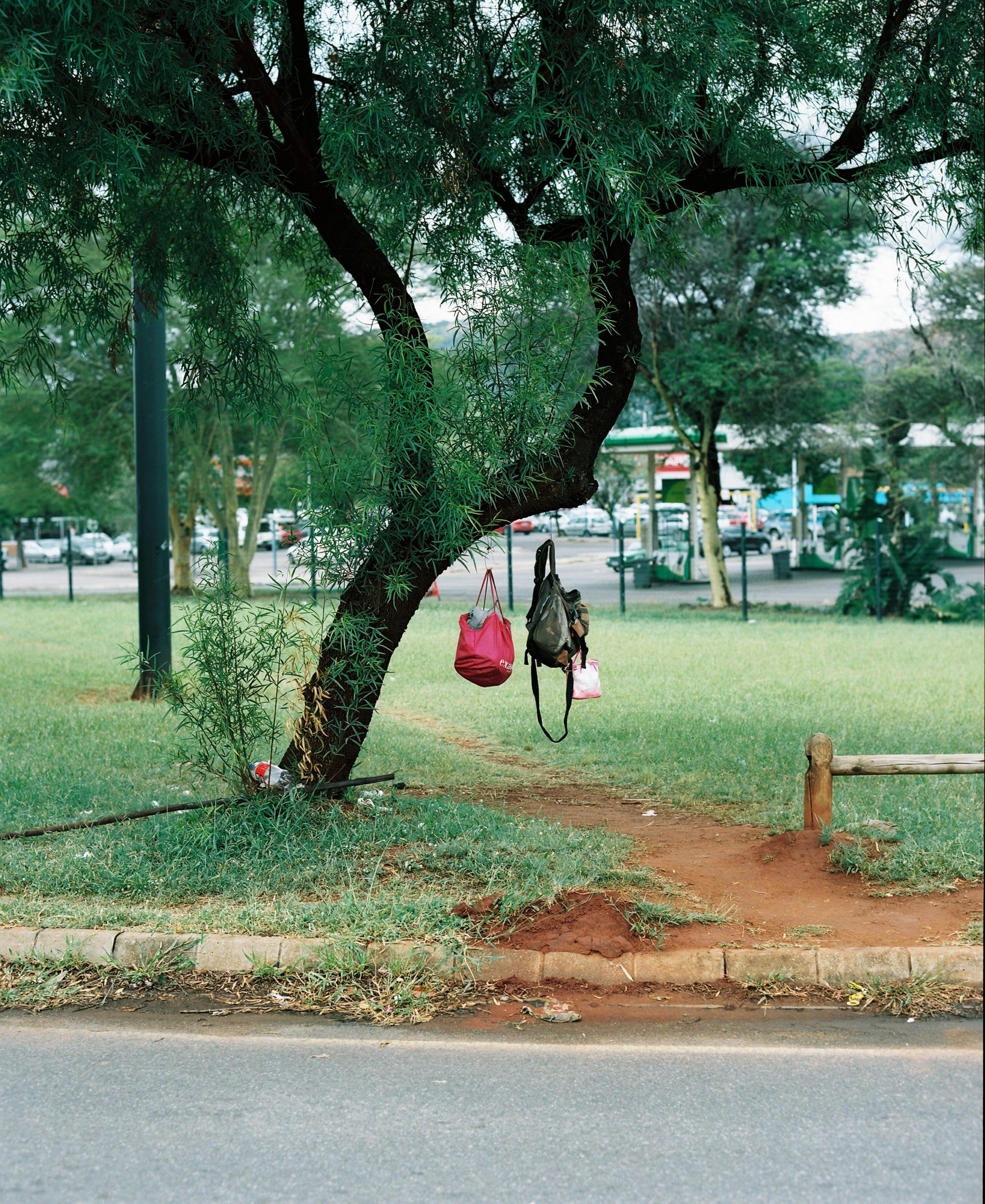A portrait of life in South Africa’s ‘white-only’ squats
- Text by Phil Kneen
- Photography by Phil Kneen

Plakkerskamp is a photo series that documents both the white squatter camps and white-only communities that have developed in South Africa. These images, taken around Pretoria and Johannesburg, represent a fraction of the estimated 450+ squatter camps in the country.
I grew up, and still live, on the Isle of Man. I’m based and work out of Peel, a small fishing town on the west coast of the Island.
In 2015, I spent a couple of weeks over Christmas living with and documenting migrants in the Jungle – the enormous makeshift camp that grew to a population of 7000, situated on the outskirts of Calais, France. After publication, I noticed a few comparisons made to the townships and white squatter camps in South Africa. I was aware of the former, but not the latter.
I went to South Africa to document people in a situation that has gone broadly unreported throughout the rest of world. I like to approach any project – whether it’s an individual portrait or a long-term photo-essay – without any preconceived ideas or rigid outlines. So the only real preparation was booking flights, arranging accommodation in Pretoria and organising a fixer.


My fixer, BJ, would approach anyone who I wanted to photograph and introduce himself and then introduce me. Afrikaans is the first language of most of these people – although a few did speak English – so most of the explaining was done by BJ. The majority of people we approached agreed to be photographed, although some less enthusiastically than others. Anyone who didn’t want to be involved would calmly say, “Nee dankie” (no thank you). On a few occasions, after someone had refused, I’d shake their hand, smile and say thank you, and then the next minute I’d be inside their home, photographing them and whatever else I liked.
By far, the most prominent misconception was that, on entering the squatter camps, I’d be greeted with hostility and suspicion. It’s understandable given some of the local news coverage these people have received. As a result, the prominent concern that the residents had was that they didn’t want images used on social media to depict them in a negative or derogatory light, so openness and honesty about why I was making the images were important from the outset.


I didn’t address racism with anyone that I photographed. However, it did enter conversations I had with white South Africans who I met during my stay. The general opinion didn’t vary a great deal: Black Economic Empowerment (BEE) is a programme launched by the South African government to redress the inequalities of Apartheid. It aims to give previously disadvantaged groups employment, but it appears to have caused more divisions. Many of the people I photographed believed that white, blue-collar workers were being replaced by black workers, regardless of experience or qualification.
An opinion which resonates throughout the world is that the white South Africans – predominantly Afrikaners – in some way ‘deserve everything they get’ for their treatment of black South Africans over 50 years of Apartheid. But what’s undeniable is that wherever you look around Pretoria and Johannesburg, the situation could not be any further away from Nelson Mandela’s vision of a ‘Rainbow Nation.’
I class myself as a documentary photographer, and I went to South Africa to document people in a situation that has gone broadly unreported throughout the rest of world. I only want to ‘show’, regardless of any political or historical bias. Viewers can, and will, come to their own conclusions.







Enjoyed this article? Like Huck on Facebook or follow us on Twitter.
You might like

As Kneecap and Bob Vylan face outcry, who really deserves to see justice?
Street Justice — Standing in for regular newsletter columnist Emma Garland, Huck’s Hard Feelings host Rob Kazandjian reflects on splatters of strange catharsis in sport and culture, while urging that the bigger picture remains at the forefront of people’s minds.
Written by: Robert Kazandjian

Alex Kazemi’s Y2K period novel reminds us that the manosphere is nothing new
New Millennium Boyz — Replete with MTV and endless band t-shirt references, the book follows three teenage boys living in 1999 USA as they descend into a pit of darkness. We spoke to its author about masculinity, the accelerated aging of teenagers, and the rebirth of subcultures in the algorithm age.
Written by: Isaac Muk

In photos: The people of Glastonbury’s queer heart The NYC Downlow
Elation and family — Once a year, a meatpacking warehouse nightclub springs up in Glastonbury’s South East corner and becomes a site of pilgrimage for the festival’s LGBTQ+ scene. We met the people who make The NYC Downlow so special.
Written by: Isaac Muk

“Moment of escape”: Maen Hammad’s defiant West Bank skate photos
Landing — Choosing to return to Palestine after growing up in the USA, the photographer found himself drawn to Ramallah’s burgeoning skate scene. His debut monograph explores the city’s rebellious youth, who pull tricks in the face of occupation.
Written by: Miss Rosen

Inside the weird world of audio porn
Porn without pictures — Storyline-driven and ethical, imageless erotica exploded during the pandemic. Jess Thomson speaks to the creators behind the microphones.
Written by: Jess Thomson

We are all Mia Khalifa
How humour, therapy and community help Huck's latest cover star control her narrative.
Written by: Alya Mooro

